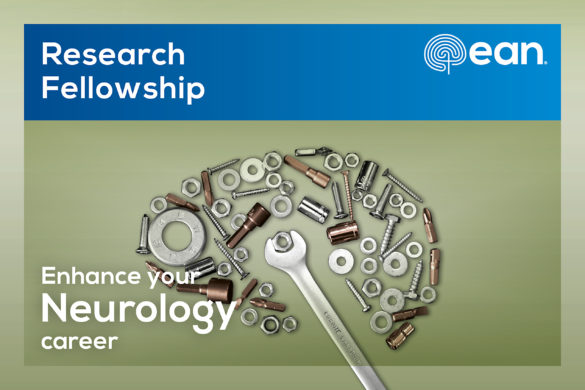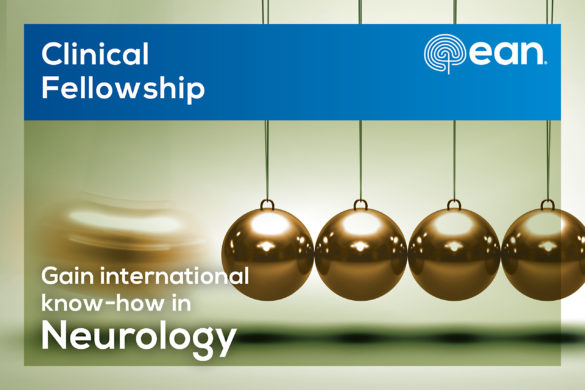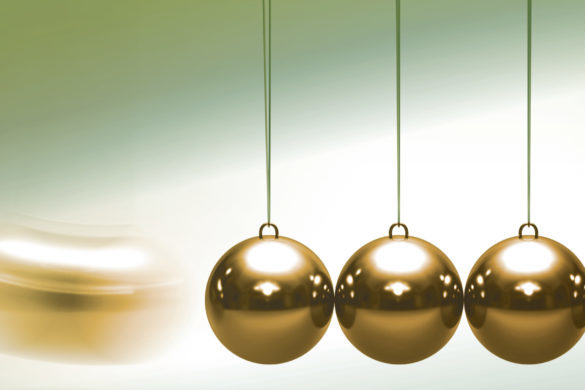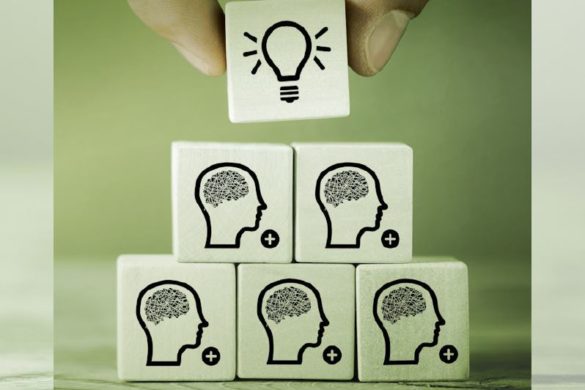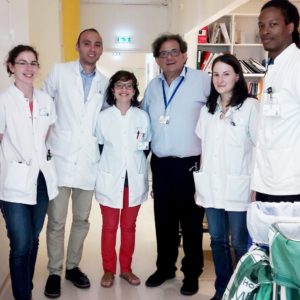
Report from Dr Ayman Ahmed Ashmawi, from Cairo, Egypt visiting the Department of Clinical Epileptology, Sleep Disorders and Functional Neurology in Children University Hospitals of Lyon, France, under the supervision of Prof. Alexis Arzimanoglou.
My visit to the host department lasted for 6 weeks, every week from Monday to Friday. My daily activities were supervised by Prof. Alexis Arzimanoglouand included:
- Attending the patient admission either referred from the staff outpatient clinics, neuropediatric departments or from external institutions, their clinical examination and further history documentation.
- Reviewing the long duration video EEG (VEEG) of the admitted patients, together with the analysis of the interictal, ictal EEG patterns and seizure semiology with one of the senior consultants.
- Attending the weekly (2/week) outpatient clinics with my supervisor in addition to occasional attending of the outpatient clinics of other senior epileptologists.
- Attending the weekly staff meeting to prepare the cases of the upcoming week and discussing the preliminary results of the cases of the ongoing week.
- Attending the teaching lectures on Treatment of the Epilepsies that were provided as part of the University Diploma of Clinical Epileptology.
- Attending the weekly epilepsy genetics meeting.
- Attending the weekly multidisciplinary session focusing on epilepsy surgery cases.
- Supervised work on manuscript preparation for the publication of a case report on a rare epilepsy syndrome.
My training at the host department was very fruitful. This is a tertiary University Department specialized in Paediatric Epilepsy. It receives severe epilepsies referred from other hospitals of the region and abroad for screening and expert opinion as well as newly diagnosed cases referred by a very active Emergency department.
All patient benefit from a comprehensive epilepsy care program that includes continuous Video-EEG monitoring, detailed analysis of clinical semiology, aetiology diagnostic workup and a neuropsychological evaluation. The children and the families can also benefit from an educational therapy program. All the data is analysed by experts in the fields of child neurology and/or functional neurology. The Department works in close collaboration with the teams of the Child Neurology Dpt., the clinical Genetics Dpt., the Neuroimaging Dpt.
Regular meetings between the teams, sharing data and debating on best practices, are a real source of learning. I had a great experience in clinical epileptology and neurophysiology.
All the consultants were very friendly from the personal point of view, more dedicative and generous as regard medical education and answering any of my questions that appeared during any of my activities in the department.
Education in the host department was very easy as all the patients were reviewed by epilepsy experts and fully investigated. Medical records, VideoEEG data and all other results were easily accessible for review.
In summary:
- A unique opportunity to be confronted, despite a short period of training, to an important number of rare and very rare epilepsy syndromes including Dravet syndrome, Hemiplegia hemiconvulsion syndrome, Rasmussen encephalitis, Landau-Kleffner syndrome, Migrating Partial Epilepsy of Infancy, EAST syndrome and atypical partial epilepsy of infancy.
- Trained in describing epilepsy seizure types semiology as well as epilepsy mimics.
- Analysis of the ictal and interictal EEG patterns
- Best available management approaches for the drug resistant and the newly diagnosed cases
- Overview on the epilepsy surgery (pre-surgical evaluation, detailed analysis of the ictal semiology, ictal and interictal EEG, Stereo EEG procedure and its analysis, interpretation of all neuroimaging data, epileptogenic zone mapping, the pathology and the post surgical outcome
- Overview on the basics of the neonatal EEG
- Learning the basics in preparing for peer reviewing and publication a case report manuscript
My only negative impression, given my limited knowledge of the French language, came from the fact that a small number of members of the staff, mainly nurses, had difficulty in communicating in English when needed.
Thank you, Ayman Ashmawi
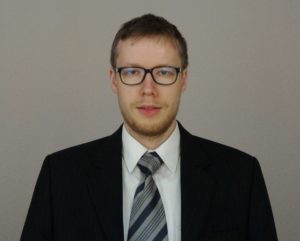
Jpeg
Report from Dr Jaroslaw Dulski, from Gdansk, Poland visiting the Medizinische Universität Innsbruck, Department of Neurology, Innsbruck, Austria under the supervision of Prof. Birgit Högl
I started my residency in neurology in 2012 under the supervision of Professor Jaroslaw Slawek, M.D., Ph.D, a movement disorder specialist. From the beginning of my residency I have been especially interested in movement disorders and sleep medicine. I applied for a fellowship in Department of Neurology, Innsbruck Medical University, Austria with the intention of further developing my knowledge.
I began the training on May 7th, 2017. My principal place of fellowship was Sleep Laboratory under the supervision of Prof. Birgit Högl. I had the opportunity to learn how to interpret and score polysomnography, to access the large datebase of past polysomnographic evaluations in various indications, to participate in everyday activities, meetings etc, to learn about the technical aspects of polysomnography during live polysomnographic examinations at night and to access books and other sources of knowledge about sleep medicine.
I also spent considerable time in other in- and outpatient Neurological Departments. Most of the time I spent in departments taking care of movement disorder patients, however, I also attended other wards ie. Intensive Care Unit, Stroke Unit. I had the opportunity to participate in the morning rounds, to attend the inpatient departments, to take part in the botulinum toxin outpatient department, to attend the movement disorder outpatient department and to familiarize myself with the past and ongoing scientific projects in the Neurological Department
My fellowship finished on June 17, 2017. I would like to thank the whole team of Department of Neurology, Innsbruck Medical University, Austria for hosting my fellowship over the 6 weeks. My experience was invaluable and I have gained valuable insight into the sleep medicine and further developed my skills in movement disorders. I would like to especially thank Prof. Birgit Högl for the time spent advising me on skills I must develop in the future and giving me constructive criticism. I would also like to express my gratitude to Prof. Poewe and Dr. Djamashidian for providing me with the perfect opportunity to make progress in movement disorders field.
Finishing this fellowship, I am walking away with many new skills that will help me in the future and will translate into better care of my patients. Furthermore, we are planning on opening a sleep laboratory unit in our hospital and the fellowship provided me with essential expertise to realize this idea.
I hope to stay in touch with the team of Department of Neurology in Innsbruck, and to become an “active” member of the European Sleep Research Society.
Thank you, Jaroslaw Dulski
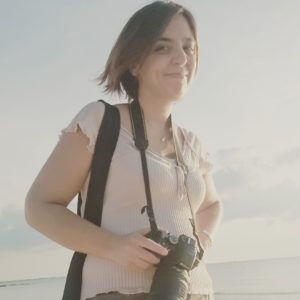 Report from Dr Mariangela Ferrara, from San Giovanni Rotondo, Italy visiting the Clinical Neurophysiology department, Aarhus University Hospital, Denmark under the supervision of AsspPof. Hatice Tankişi
Report from Dr Mariangela Ferrara, from San Giovanni Rotondo, Italy visiting the Clinical Neurophysiology department, Aarhus University Hospital, Denmark under the supervision of AsspPof. Hatice Tankişi
I would thank very much the EAN Education Committee for this opportunity to improve my skills and knowledge in the Clinical Fellowship Programme.
I spent 3 months, from April 17th to July 17th, at the Department of Clinical Neurophysiology, Aarhus University Hospital, Denmark, under the supervision of Associate prof. Hatice Tankişi. It was an amazing experience for my professional growth as a neurophysiologist and for the stimulating environment of my hosting department which contributed to a very fruitful fellowship. During the first month I participated to the neurophysiological examinations as an observer and I could learn and appreciate their clinical approach and technical setting of exams on different cases of neuromuscular diseases.
In that period I learned how to perform the near-nerve needle technique on sural and ulnar nerves and I also had very interesting hints on the treshold-tracking techniques such as: the nerve excitability test, the MScanFit MUNE, the Muscle Velocity Recovery Cycle test and the treshold-tracking TMS. Along with references from the literature on these topics, I had theoretical lessons with Associate prof. Tankişi and PhD student Agnes Witt, MD and practical demonstrations of all these techniques on healthy volunteers. Moreover, I had a lesson on the ultrasound scan of peripheral nerves with Associate prof. Erisela Qerama who fully instructed me in the technical issues of the procedure, in its advantages and disadvantages together with a practical part in which I did a scan of medial and ulnar nerves on a colleague.
The last 2 months of fellowship were mostly focused on both quantitative EMG and nerve conduction studies training: every week I evaluated at least 2 selected neuropathic or myopathic suspected patients and I performed these exams on them by myself, supervised by Associate prof. Tankişi. One of my main goals, in fact, was to get technical insights on the quantitative EMG examination and this learning experience added value to the fellowship strongly as it was rewarding beyond any expectations.
During the fellowship I enjoyed the fully educational-oriented activity of the department. Young neurophysiologists’ training is taken very seriously and each Friday, during the EMG conference, all participants were invited to discuss their most interesting cases of the week and to review the exams performed for final agreement on their accuracy. I found this appointment extremely informative and useful and the interaction with my colleagues and supervisors and the tips received worthwile and constructive.
Another stimulating appointment was the Journal Club on Thursday in which new updates from literature on neurophysiological topics were presented and examined. During one Journal Club I also discussed with the Danish colleagues the draft of a research proposal I had designed in Italy on EMG evaluation of lower motor neuron disease in early ALS patients and my review of the literature on this topic.
Most of all, I had the privilege to receive appraisal and comments from prof. Anders Fuglsang-Frederiksen, Associate prof. Hatice Tankişi, Associate prof. Birger Johnsen and senior scientist Kirsten Pughdal: their interest and attention to my research were priceless and enlightening for me. I am delighted by how favourably they value new ideas and projects coming from young neurologists and so grateful for their encouragements.
I would like to express my gratitude to the head of the department, dr. Peter Orm Hansen, for accepting my candidacy and supervising my fellowship, and to my mentor, Hatice Tankişi, who was an excellent teacher and an invaluable support. Genuinly interested in my goals and in my accomplishments throughout the entire lenght of my stay, Dr. Tankişi filled my fellowship with continuous stimuli to my inquisitiveness and a lot of precious feedbacks.
Finally, I have to thank dr. Maurizio Leone who has enthusiastically fostered my will to improve as a neurophysiologist by considering the EAN Clinical Fellowship a big chance to grow and challenge myself abroad.
To conclude, I recommend the Clinical Neurophysiology Department of Aarhus for the EAN Clinical Fellowship for both their particular attention to the educational aspects and their stimulating environment along with the high level of teaching and accuracy in performing the neurophysiological examinations.
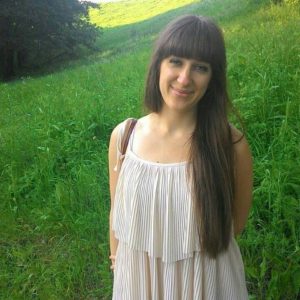 Report from Dr Valeriia Grymailo, from Kharkiv, Ukraine visiting the Department of Neurology, Tel Aviv Sourasky Medical Center, Israel under the supervision of Dr. Svetlana Ripervasser
Report from Dr Valeriia Grymailo, from Kharkiv, Ukraine visiting the Department of Neurology, Tel Aviv Sourasky Medical Center, Israel under the supervision of Dr. Svetlana Ripervasser
It was a great experience not only to learn in one of the best Israel clinic, but even to leave in a different country for a month. I love Israel. This country has interesting culture, kitchen and customs. For example Shabbat. It was rather strange for me to work on Sunday and rest on Friday.
In the hospital everyone were nice and ready to help. I didn`t have problems with English, but I had some troubles with Hebrew because almost all conversations with patients, among doctors and medical documentation were in Hebrew. So it is not enough to know only English in Israel.
As for my training it was very helpful for my practice and scientific work. I took part in morning rounds and diagnostic procedures and clinical discussions. As I am very interested in epilepsy and EEG I spent a lot of time in EEG monitoring unit and epilepsy unit. The most useful part was watching EEG recordings with highly skilled epileptologists and compare it with clinical picture. I was trained to recognize sleep and awake EEG patterns, to differentiate stages of sleep based on EEG patterns. It is very important and no always easy to distinguish epileptic from non epileptic activity and to see different EEG artifacts. Also I came to EMG doctor`s office. There I learned the stimulated single fiber procedure. It is one of the golden standards in diagnostic of myasthenia gravis along with tensilone test, which I also can do now. Interesting was diagnostic algorithm of differentiation between the radiculopathy and peripheral nerve damage.
Memorable was meeting with Levy body disease specialist and her patients because I had not much experience in diagnostic and treatment of this disease. Also I learn a lot about treatment options for Parkinson`s disease in late stages like APO GO and duodenal insertion of Duodopa, that can really help in complicated cases to escape ”OF periods” and to reduce the amount of drugs and in this way to minimize dyskinesias.
In the stroke unit I observe procedure of diagnostics of opened foramen ovale in young patients with stroke and visited meetings with neuroradiologist specialized in MRI.
Thank you.




